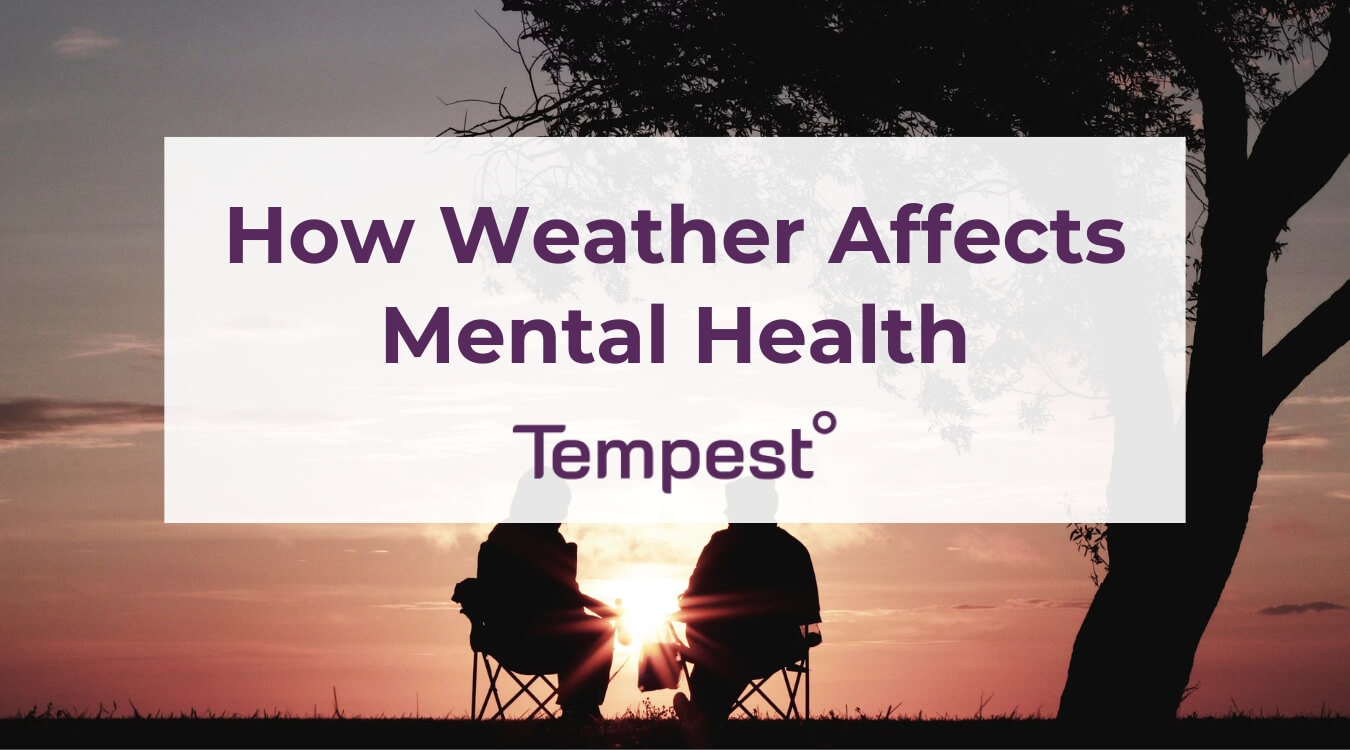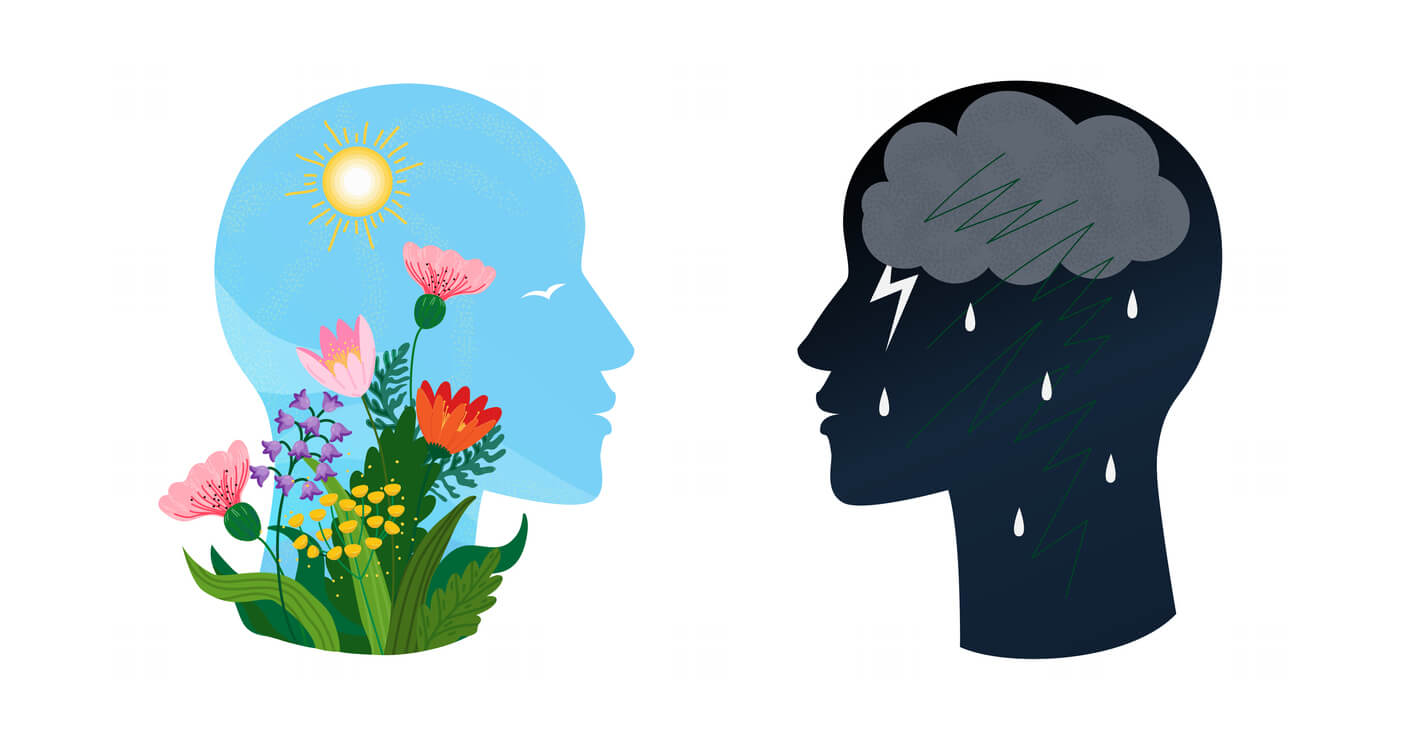
Does a gloomy, rainy day bring you down? Does a sunny day make you smile? Research into how the weather affects mood has shown that this link is more than a simple observation.
It’s no surprise that a stormy, cold, and cloudy day can impact your mood when it ruins your planned activities. But, psychological research has found a correlation between the weather and people’s moods, even without obvious reason. Curious about how the weather can affect your mood? Continue reading below as we discuss what the experts say.
- Can Weather Affect Your Mood?
- Why Does The Weather Affect My Mood So Much?
- Mental Health That’s Affected By The Weather
- How Knowing Your Local Weather Can Help You Cope
Use the Tempest Home Weather System for accurate and reliable weather information for your precise location.
Can Weather Affect Your Mood?
Different weather conditions, like sunlight, rain, or extreme temperatures, can influence a person’s emotional state. Here are some of the studied relationships between mood changes and weather patterns:
- Happiness: Mildly warm temperatures have been associated with positive emotions compared to mildly cool or extreme temperatures.
- Sadness: Low arousal emotions have been linked to temperatures below 50 degrees Fahrenheit and cloudy or overcast weather.
- Anxiety: Research has shown the risk of panic attacks increases when temperatures rise.
- Anger: Increased feelings of aggression and hostility have been shown to increase above 75 degrees Fahrenheit.
Why Does The Weather Affect My Mood So Much?
Not everyone will respond to weather changes in the same way. Researchers over a decade ago boiled this down to the fact that some people are “Summer Lovers” and have a better mood in warm, sunny weather, while others are “Summer Haters” who feel worse during these conditions, among other labels.
So, depending on which category you fall into, the weather may impact you differently than other people. Maybe you’re someone whose mood isn’t related to the weather. Or, if you’re someone with meteoropathy, you may be significantly impacted by changing weather patterns.
Further, studies have shown a link between the amount of the stress hormone cortisol circulating in your body and being more sensitive to heat. Thus, the link between people’s moods and the weather is complex and can vary from person to person.
Learn how weather fronts influence changing weather patterns — including storm length and severity.
Mental Health That’s Affected By The Weather
As we’ve explored so far, mental health conditions like depression, anxiety, and mood disorders may be triggered or worsened by weather changes, though our understanding of why this occurs is still being investigated.
To date, some of the most studied topics on the relationship between mental health and weather include Seasonal Affective Disorder (SAD), barometric pressure and mood, and climate anxiety, which we’ll discuss in further detail below.
Seasonal Affective Disorder (SAD)
Seasonal Affective Disorder (SAD) is a type of depression that is related to seasonal weather changes, as explained by the Mayo Clinic. It’s estimated that 0.5% to 3% of the general population experiences SAD, representing millions of Americans.
Those with SAD may experience a rise in moody or depressive symptoms each year as fall begins, which persist throughout the winter and ease in the spring and summer. Research quoted by the National Institute of Mental Health (NIH) explains that shorter daylight hours in the winter months may create dysfunction in the molecules that maintain serotonin levels, leading to depressive-like symptoms in affected individuals.
The NIH cites treatments that have been shown to effectively treat SAD symptoms, including light therapy, Vitamin D supplements, antidepressant medications, and psychotherapy.
Barometric Pressure And Anxiety
Fluctuations in barometric pressure can cause physical and mental health symptoms, including anxiety and headaches. An animal study from 2010 first found a link between a drop in barometric pressure and depression in rats, suspecting prolonged constriction on the sciatic nerve intensifies pain-related behaviors.
These findings were supported by a human study conducted in 2022, which showed a significant effect of weather variables like atmospheric pressure on depressive symptoms. Thus, as barometric pressure drops ahead of a storm, affected individuals may feel a rise in depressive or anxious feelings.
Climate Change Anxiety
According to the American Public Health Association, climate change can impact mental health and wellness just as much as it does physical health. These experts note that climate change can exacerbate feelings of stress, anxiety, depression, and anger, particularly in women, children, the elderly, and other vulnerable populations.
More specifically, a 2022 Yale study shows that 64% of Americans say they are at least somewhat worried about global warming, including over one-fourth who say they are very worried. What’s troubling is that nearly one-third of respondents report feeling hopeless when thinking about global warming, and one in four Americans actively try not to think about it.
Understand how feels-like temperature can describe outdoor weather conditions more accurately than the actual air temperature.
How Knowing Your Local Weather Can Help You Cope
Of course, you can’t control the weather. But, if you’re someone who is sensitive to weather changes, staying informed about local weather conditions can help you better manage your mood and mental health.
With the Tempest Home Weather System, you’ll receive accurate weather data for your precise location. This will help you monitor conditions that might influence your mood, like pressure, rain, temperature, and humidity, so that you can plan for the day ahead.
If you anticipate a difficult day or week ahead based on the forecast, experts at Johns Hopkins Medicine suggest these tips and strategies to cope with weather-related mood changes:
- Speaking with a healthcare professional
- Getting regular exercise
- Engaging in activities that make you feel happy
- Connecting with friends and family
- Eating healthy, balanced meals
Understand Your Local Weather Better With The Tempest Weather System
The specific link between weather and mood changes will continue to be studied, though it’s clear that weather conditions impact certain people’s temperament and mental well-being more so than others.
With the Tempest Home Weather System, you don’t have to rely on the accuracy of local weather forecasts. Instead, you’ll get precise weather data for your home’s location, allowing you to monitor conditions like barometric pressure, temperature, precipitation, and more so you can prepare for the day ahead.
Shop the Tempest Home Weather System for a guaranteed better forecast that helps you track changing weather conditions that may impact your mood.


